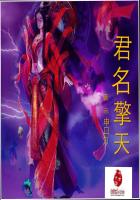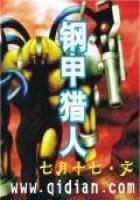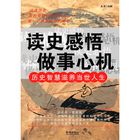The folk tale so made, and of such character, comes to the child somewhat as an unprejudiced newspaper account of to- day's happenings comes to us.It pleads no cause, except through its contents; it exercises no intentioned influence on our moral judgment; it is there, as life is there, to be seen and judged.And only through such seeing and judging can the individual perception attain to anything of power or originality.Just as a certain amount of received ideas is necessary to sane development, so is a definite opportunity for first-hand judgments essential to power.
In this epoch of well-trained minds we run some risk of an inundation of accepted ethics.The mind which can make independent judgments, can look at new facts with fresh vision, and reach conclusions with simplicity, is the perennial power in the world.And this is the mind we are not noticeably successful in developing, in our system of schooling.Let us at least have its needs before our consciousness, in our attempts to supplement the regular studies of school by such side-activities as story- telling.Let us give the children a fair proportion of stories which stimulate independent moral and practical decisions.
And now for a brief return to our little black friend."Epaminondas" belongs to a very large, very ancient type of funny story: the tale in which the jest depends wholly on an abnormal degree of stupidity on the part of the hero.Every race which produces stories seems to have found this theme a natural outlet for its childlike laughter.The stupidity of Lazy Jack, of Big Claus, of the Good Man, of Clever Alice, all have their counterparts in the folly of the small Epaminondas.
Evidently, such stories have served a purpose in the education of the race.While the exaggeration of familiar attributes easily awakens mirth in a simple mind, it does more: it teaches practical lessons of wisdom and discretion.And possibly the lesson was the original cause of the story.
Not long ago, I happened upon an instance of the teaching power of these nonsense tales, so amusing and convincing that I cannot forbear to share it.A primary teacher who heard me tell "Epaminondas" one evening, told it to her pupils the next morning, with great effect.A young teacher who was observing in the room at the time told me what befell.She saidthe children laughed very heartily over the story, and evidently liked it much.About an hour later, one of them was sent to the board to do a little problem.It happened that the child made an excessively foolish mistake, and did not notice it.As he glanced at the teacher for the familiar smile of encouragement, she simply raised her hands, and ejaculated "`For the law's sake!'"It was sufficient.The child took the cue instantly.He looked hastily at his work, broke into an irrepressible giggle, rubbed the figures out, without a word, and began again.And the whole class entered into the joke with the gusto of fellow-fools, for once wise.
It is safe to assume that the child in question will make fewer needless mistakes for a long time because of the wholesome reminder of his likeness with one who "ain't got the sense he was born with." And what occurred so visibly in his case goes on quietly in the hidden recesses of the mind in many cases.One "Epaminondas" is worth three lectures.
I wish there were more of such funny little tales in the world's literature, all ready, as this one is, for telling to the youngest of our listeners.But masterpieces are few in any line, and stories for telling are no exception; it took generations, probably, to make this one.The demand for new sources of supply comes steadily from teachers and mothers, and is the more insistent because so often met by the disappointing recommendations of books which prove to be for reading only, rather than for telling.It would be a delight to print a list of fifty, twenty-five, even ten books which would be found full of stories to tell without much adapting.But I am grateful to have found even fewer than the ten, to which I am sure the teacher can turn with real profit.The following names are, of course, additional to the list contained in "How to Tell Stories to Children."ALL ABOUT JOHNNIE JONES.By Carolyn Verhoeff.Milton Bradley Co., Springfield, Mass.Valuable for kindergartners as a supply of realistic stories with practical lessons in simplest form.
OLD DECCAN DAYS.By Mary Frere.Joseph McDonough, Albany, New York.A splendid collection of Hindu folk tales, adaptable for all ages.
THE SILVER CROWN.By Laura E.Richards.Little, Brown & Co., Boston.Poetic fables with beautiful suggestions of ethical truths.
THE CHILDREN'S HOUR.BY Eva March Tappan.Houghton, Mifflin & Co., Boston, New York, and Chicago.A classified collection, in ten volumes, of fairy, folk tales, fables, realistic, historical, and poetical stories.
FOR THE CHILDREN'S HOUR.BY Carolyn Bailey and Clara Lewis.Milton Bradley Co., Springfield.A general collection of popular stories, well told.
THE SONS OF CORMAC.By Aldis Dunbar.Longmans, Green & Co., London.Rather mature but very fine Irish stories.
For the benefit of suggestion to teachers in schools where story- telling is newly or not yet introduced in systematic form, I am glad to append the following list of stories which have been found, on several years' trial, to be especially tellable and likable, in certain grades of the Providence schools, in Rhode Island.The list is not mine, although it embodies some of my suggestions.I offer it merely as a practical result of the effort to equalize and extend the story-hour throughout the schools.Its makers would be the last to claim ideal merit for it, and they are constantly improving and developing it.I am indebted for the privilege of using it to the primary teachers of Providence, and to their supervisor, Miss Ella L.Sweeney.















